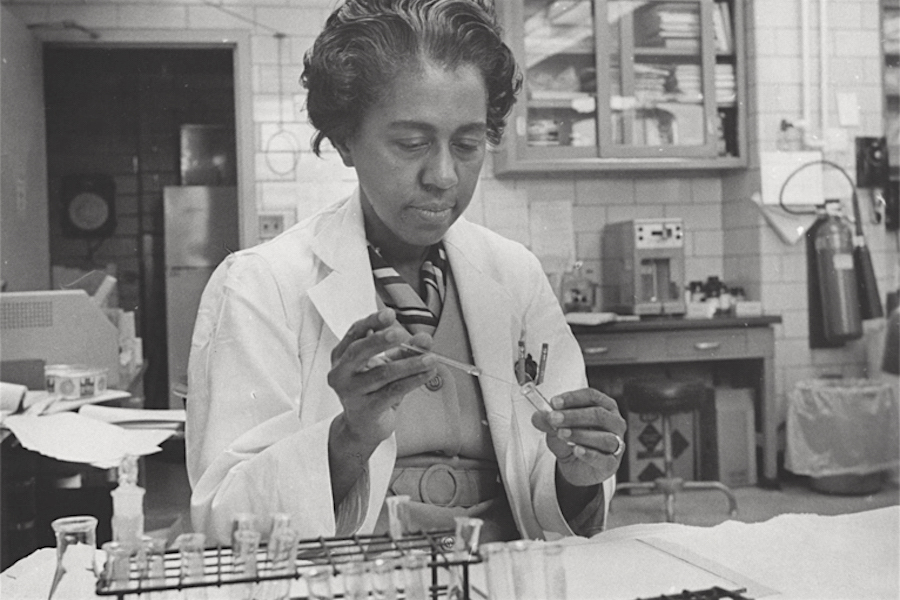Groundbreaking Scholar Honored Decades Later
On May 19th, 2023, over 200 people gathered at Columbia University’s Havemeyer Hall to commemorate the legacy of Dr. Marie Maynard Daly. She was the first Black woman in the United States to earn a PhD in chemistry, which she obtained from Columbia in 1947. Attendees included high school students, professional chemists, academics and scientists. The American Chemical Society designated Havemeyer Hall as a National Historic Chemical Landmark in Dr. Daly’s name that day.
“You have done a mitzvah!” said Dr. Ann McDermott, Chair of Columbia’s Chemistry Department, thanking the American Chemical Society for recognizing Daly’s seminal contributions. Dr. Carlos Alonso, Dean of Columbia’s Graduate School of Arts and Sciences, characterized Daly and others like her as “catalysts for change.”
Early Life and Education
Marie Maynard Daly was born in 1921 in Queens, NY. Her father studied chemistry at Cornell but never finished his degree. Daly developed an early passion for science, attending a specialized high school for gifted girls with a strong focus on math and science curriculum.
Daly graduated with top honors from Queens College as part of an overwhelmingly white student body. Eager to conduct advanced research, she enrolled at NYU in 1943 to obtain her Master’s degree in just one year. Daly was then accepted to Columbia’s PhD program, joining Dr. Mary Caldwell’s lab as the sole female professor in the chemistry department.
Remarkably, Daly completed her dissertation, “A Study of the Products Formed by the Action of Pancreatic Amylase on Corn Starch,” in just three years.
Pioneering Research Career
At Rockefeller University, Daly researched protein production, co-authoring a key study on how it requires RNA. Her work was mentioned in Dr. James Watson’s 1962 Nobel Lecture. At Columbia’s medical school, she conducted groundbreaking research connecting atherosclerosis, aging and hypertension.
In 1960, Daly began teaching biochemistry at Albert Einstein College of Medicine, where she eventually gained tenure. Throughout the 60s and 70s, she published extensively on cholesterol, heart disease risk factors, and more. Daly returned to studying enzymes later in her career, publishing her last solo paper in 1985 prior to retirement.
Inspiring Future Generations
The 2023 dedication ceremony featured talks by several eminent scientists of color who spoke about how Dr. Daly motivated their own careers. Attendees included Dr. Linda Meade-Tollin, Dr. Sabrina Collins, Dr. Mandë Holford and Dr. Marc Walters.
High school students from the SEEDsummer program were also present. As they posed by the new National Historic Chemical Landmark plaque honoring Daly’s achievements, it was evident her pioneering story already influences the next generation of scientists and PhD students.





